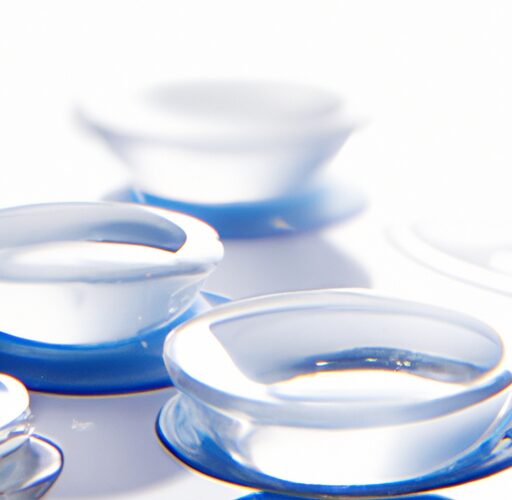Contact Lens Materials: Choosing the Right One for Your Needs
The 411 on Contact Lens Materials
If you’re a contact lens wearer, you know that choosing the right materials for your contacts is important. There are a few different types of contact lens materials out there, each with their own set of advantages and disadvantages.
Silicone Hydrogel Lenses
Silicone hydrogel lenses are the newest type of contact lens material on the market, and they’re quickly becoming the most popular. They’re made of a silicone-based material that allows more oxygen to pass through the lenses, which means your eyes will stay healthier and more comfortable. These lenses are also very versatile, as they can be worn for extended periods of time, making them a great option for people with busy lifestyles.
Hydrogel Lenses
Hydrogel lenses are another common type of contact lens material. They’re made of a soft, flexible plastic material that allows a good level of oxygen flow to your eyes. They’re also very easy to use and are a good option for people who are new to wearing contact lenses. Hydrogel lenses are typically used for daily wear, so you’ll need to remove them before you go to bed.
Rigid Gas Permeable Lenses
Rigid gas permeable (RGP) lenses are made of a harder plastic material than hydrogel lenses. They allow less oxygen flow to the eyes, which means they’re not as comfortable as softer lenses. However, they offer sharper vision and are suitable for people with certain eye conditions. RGP lenses need to be cleaned and maintained regularly to prevent any deposits from building up.
The Verdict
Ultimately, the best contact lens material for your needs will depend on a few different factors, including your lifestyle, your eye health, and your personal preferences. Talk to your eye doctor about your options and make sure you weigh the pros and cons carefully before making your decision.
Final Thoughts
Contact lenses can be a great option for correcting vision without the use of glasses. When choosing the right material for your lenses, be sure to consider your individual needs and preferences. Remember that the most important thing is to keep your eyes healthy and comfortable, so don’t be afraid to ask your eye doctor for advice. Happy wearing!

